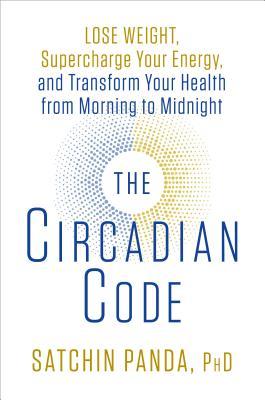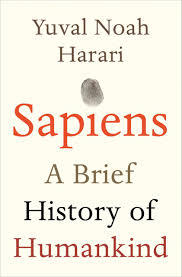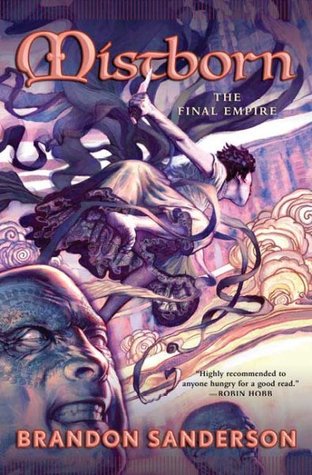non-fiction
Code - Charles Petzold
Code is a delightful walk through the developments that led to the modern personal computer. I strongly recommend this book to anyone who is considering learning to code, or anyone mildly interested in how complex systems develop. A notable aspect of this book is the optimism it evokes: the emphasis on ideas being built atop of one another, and how a few people’s tenacity and grit can contribute to high-impact changes on the world.
What hath God wrought!
Samuel Morse’s message during the first public demonstration of the telegraph, May 24, 1844.
The beginning of the book focuses on elementary circuits, various base number systems, and ways that information can be represented in different codes (e.g., Braille). By about a quarter of the way through, you learn the basics of Boolean Algebra and how it can be coupled with circuitry to create machines that can perform basic calculations; clear circuitry diagrams are included throughout, which bolster the ideas offered by the prose. Moving onward, we learn how memory can be stored in these machines with more complex logic gate configurations, ultimately culminating in what could be called a ‘computer.’
Controlled repetition or looping is what separates computers from calculators.
The latter half of the book explains the connection of programming languages to machine code, describes the main players involved in the race to build faster, smaller, and overall better computers, and tells of the events that led to the birth of Silicon Valley.
The Structure of Scientific Revolutions - Thomas S. Kuhn
Thomas Kuhn’s long-form essay provides an in-depth search into what circumstances move science forward. He breaks scientific study into two broad categories: normal science, and discovery or crisis-response science. The former is a practice by which scientists use well-accepted concepts to further build upon the understanding of the paradigm in which those concepts are entrenched.
textbooks [that] expound the body of accepted theory … shared two essential characteristics. Their achievement was sufficiently unprecedented to attract an enduring group of adherents away from competing modes of scientific activity. Simultaneously, it was sufficiently open-ended to leave all sorts of problems for the redefined group of practitioners to resolve. Achievements that share these two characteristics I shall henceforth refer to as ‘paradigms’
The latter group encompasses activity that is happened upon through noting of anomalous results. For example, the now archaic Earth-centric view of our galaxy was once widely accepted; what caused this to change? Evidence was noted that did not fit the existing paradigm; an Earth-centric model could not sufficiently account for the movements of the planets or stars. As such, the paradigm was thrown into a state of crisis, and only could be replaced when a new sufficient model arose (in this case, that of helio-centrism).
To reject one paradigm without simultaneously substituting another is to reject science itself. That act reflects not on the paradigm but on the man. Inevitably he will be seen by his colleagues as “the carpenter who blames his tools.”
Some may say Kuhn’s writing is repetitive, or too wordy, but I found that the many ways he frames and hones ideas to be both helpful in cementing his premises, and just enjoyable to read.
The Circadian Code - Satchin Panda
This book fits squarely in the category of ‘books that could have been a blog post;’ however, I must mention it as I feel the nuggets of information given can be beneficial to all humans, and I myself strive to practice most of the lifestyle choices that Dr. Panda espouses. The following quote addresses the main problem that the book is addressing:
Our modern lifestyle is disrupting a deeply ingrained, primordial, and universal code to being healthy.
Narrowing the gap between a life in modernity and that which our bodies evolved:
- Eat within a shorter window of time. Intermittent fasting (oftentimes eating within an 8-hour window, and fasting for 16-hours daily) has been shown to be a workable tactic for people with obesity to get to healthy weights and reverse diabetic responses. It also is shown to have other positive effects, like inciting autophagy, a biological mechanism in which the body utilizes ‘old’ cells for energy, acting as an internal garbage collector. As an average-weight person having practiced IF for about a year, I found it to be an incredibly positive lifestyle change. The greatest benefit has been the ease it brought to my life via simplification: the binary lifestyle choice of eating or not eating is simpler (and thus easier to implement consistently) than complex diet-centric choices like “no carbs” or “only X calories a day.”
Meta decision making is much more powerful than deciding in the moment.
Be consistent with your sleeping habits. Going to sleep and awaking within +/- 30 minutes of a certain time every morning and night is shown to have positive outcomes like reduced risk of depression and increased mental clarity.
Align your waking and sleeping hours with the light in your environment. This idea is gaining popularity with the advent of ‘flux’ settings on devices with screens. In my own home, we have found that using salt lamps in the evening provides a pleasant ambient glow, while also strongly limiting the amount of blue light.
Sapiens: A Brief History of Humankind - Yuval Noah Harari
During my reading of Sapiens I felt compelled enough by the content to write summaries of several of the chapters, which can be found in these posts.
No book - especially one on history - is without biases or faults, and this is not an exception. That being said, everyone should read this book. It is engaging, conveys ideas succinctly in a manner that should be reachable to most readers, and is not too forceful in its dogma.
fiction
Neverwhere - Neil Gaiman
In 2018, I spent just shy of six months in London. Early on in this stay, I thought it sensible to read books about or set in the city, which led me to the often comical, sometimes touching book, Neverwhere. As a first-time visitor to London, I found that it was indeed a fun way to feel more connected to the city, or at least familiarizing myself with some of the names of tube stations and historical sites.
The plot follows Richard, a London businessman who is dissatisfied with his life, but not keen on really doing anything to change it. It seems like things will continue on in their mundane misery, until he is swept up on an adventure through a fantastical world that he never knew was right under his feet: London Below. During the fantasy-like quest that unfolds for Richard, lines sometimes blur between what is and is not real; this has the interesting effect of forcing the reader to think on the plight of those in our society who fall through the cracks, effectively living in a separate ‘underground’ world.
Neil Gaiman’s dry humor brought me to audibly chuckle aloud several times, and his prose is pithy and clever.
Richard had noticed that events were cowards: they didn’t occur singly, but instead they would run in packs and leap out at him all at once.
the day became one of waiting, which was, he knew, a sin: moments were to be experienced; waiting was a sin against both the time that was still to come, and against the moments one was currently disregarding.
Mistborn trilogy - Brandon Sanderson
This was my first time ever reading any of Brandon Sanderson’s books, and it exceeded my expectations. What I found most compelling is the completeness in the work - all of the loose ends were tied up at the end of the trilogy, leaving a pleasant feeling of catharsis by the end.
Mistborn follows a group of thieves in their quest to overthrow the evil that besets their world, both in the form of a merciless tyrant, and in something more ethereal. Through their quest, they brutally learn that what separates ‘good’ and ‘evil’ is not so clear. Themes and questions on morality, classism, and sacrifice permeate this story.
I feel it prudent to note that Sanderson is of the Latter-day Saints Church, which I feel can come through in some of his writing, having moved on to his other books as well.
See what else I’m reading on goodreads or in the “reading list” section.





